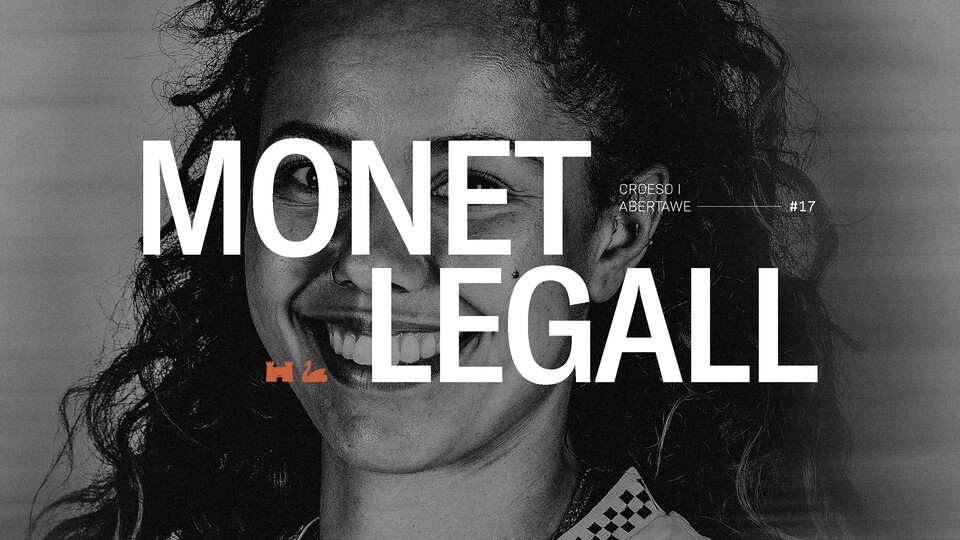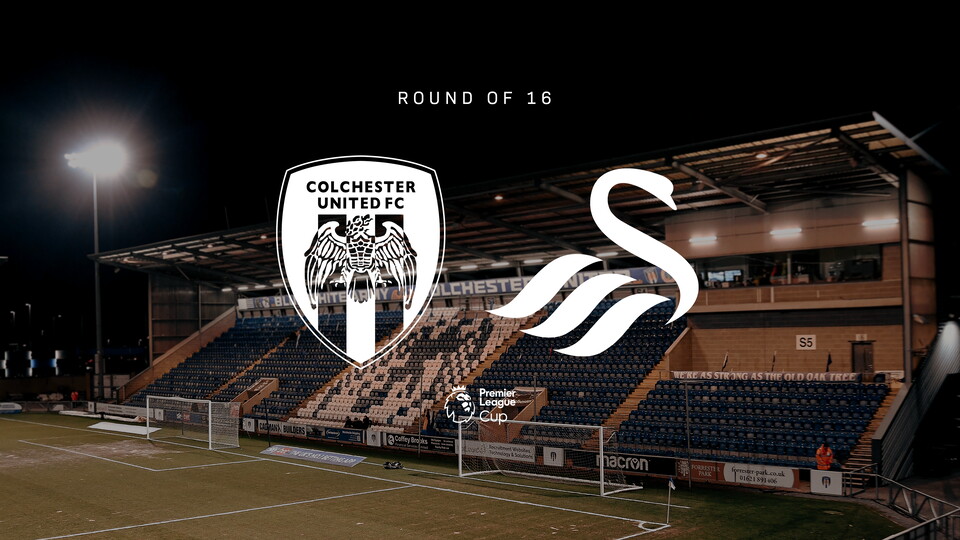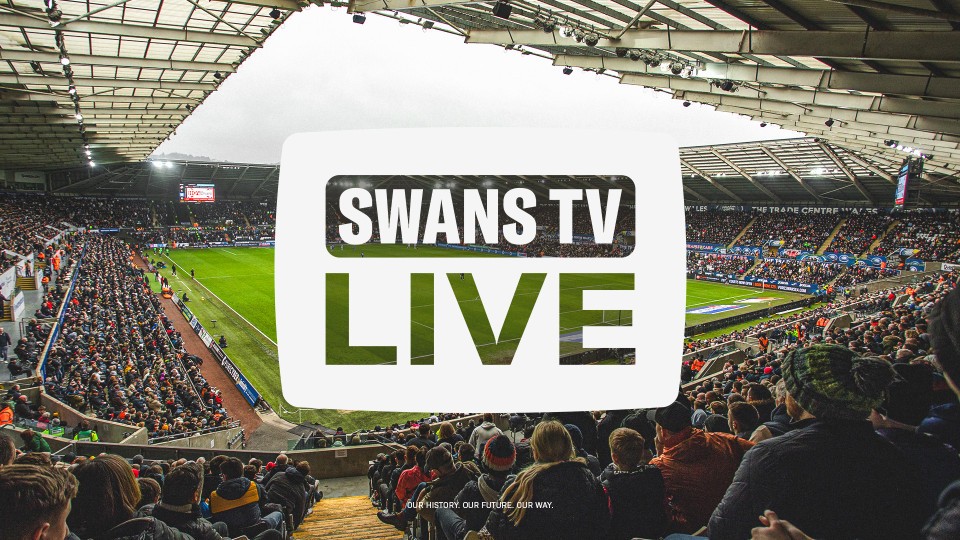Referees are just like us
Sun, 01/19/2014 - 09:00
There's been an amusing video clip doing the rounds since the Swans' historic FA Cup win at Old Trafford a couple of weeks ago.
The Swans are on the attack and Alejandro Pozuelo is fouled. Referee Mike Dean waves play on signalling advantage to the visitors as they are in a promising position.
Unfortunately, the Swans give the ball away and Dean throws back his head in apparent frustration at the attack breaking down.
Some people have questioned why Dean reacted in such an extravagant and apparently frustrated fashion . . . it's even been suggested by some that he's a closet Swans fan!
One article cheekily claimed he was angry that Pozuelo hadn't squared the ball for him to shoot at goal himself!
But, the answer to why he reacted in the way he did is simple . . . he's human!
Now I know this may come as a surprise to many people, but yes, referees and their assistants are indeed human.
And here's another thing that explains his reaction and may well come as a surprise - they love the game.
Dean was just reacting like anyone else who likes to see good flowing football. He'd played his part in trying to contribute to that by playing the advantage and unfortunately it hadn't quite come off.
Now I know refs have to keep a check on themselves in case any show of emotion is misread as impartiality.
But this wasn't Dean showing any bias to one team or another; it was just the "football man" in him showing personal frustration that his effort to keep the game flowing had come to nothing.
Spurs fans may reluctantly remember Dean appearing to celebrate Louis Saha's goal for them against Arsenal in their 5-2 derby defeat a couple of years ago, after playing a successful advantage.
I think it is hugely refreshing to see a referee showing a glimpse of his human side and a passion for the game.
And it was also a reminder that the officials aren't the unfeeling robots we sometimes expect them to be.
They are human, they have emotions, they have their own opinions and, yes, like all of us, they sometimes make mistakes.
I think it's probably fair to say that Dean isn't the most popular ref amongst Swans fans following his decision to award a controversial penalty to Cardiff in the derby back in 2009.
Most Swans fans, me included, saw that as an error on his part. I'm sure Mike Dean would argue than in his honest opinion, from his angle and seeing the incident just once in real time, it was a penalty.
Whether it was a mistake or that his honestly held opinion was different to the majority of Swans fans, it was a decision taken by a human. As such it will always been open to question and debate
There was also a more sinister reminder during that game that referees are human. It came when a coin thrown by a Cardiff fan thudded into his head, cut his skin and drew blood.
This was a very real and visual reminder that referees are not machines and that they are put under all sorts of intolerable pressures which make an already challenging job even more difficult.
I know officials these days are, by most standards, very well paid. But in relation to the players they officiate, the financial rewards are modest.
And the chances of making it to the very top level are even slimmer than making it as a professional footballer. Think about it, for every 22 professional footballers on a pitch at one time there are only three officials.
So, unless you have a genuine passion for the game, why on earth would you want to subject yourself to the almost microscopic scrutiny, enormous pressure, and unsympathetic abuse that the modern day referee is exposed to?
If, during the course of the match, one of the players should fail to control a pass, the majority of fans will shrug their shoulders, roll their eyes skyward, and possibly mutter a curse under their breath.
They will be disappointed the player has made a mistake, but forgive him - unless he is a serial offender - and hope he does better next time.
Should a referee happen to miss a handball against our team, then he is accused of being "useless", "blind", or worst of all, "biased".
The fact that he, or his assistants, has made a genuine mistake, like the player who misplaces a pass, or misses an easy chance, doesn't seem to come into the equation for many fans.
For many, referees aren't allowed to make mistakes, they should be 100 per cent right every time. Players are generally forgiven; referees are not - well at least not by one set of supporters watching a game.
Yes, referees make mistakes, and if they make too many mistakes, like players, they should be dropped to a lower standard. But the vast majority of referees get far more decisions right than they get wrong. And when they make a mistake it is just that - an honest error. Let's face it, we all make them and we hope to be forgiven for them and learn from them.
We have to remember that the referee has one view of an incident, from one angle, usually at high speed, and possibly obstructed by other players in his line of vision.
How many times have you watched an incident at a match or on television and been certain a player was offside, only to see a replay which shows your initial opinion was completely wrong? The ref or assistant doesn't get that second chance.
And, of course, you have to consider the fact that some players aren't always 100 per cent honest in everything they claim for.
At its most "innocent" it may be claiming a throw-in or a corner you know the ball came off you last. Come on, admit it, anyone who's played the game has done something along those lines . . . right or wrong, it's human nature.
At its worst, there is diving. How can certain players criticise referees for making mistakes when they knowingly go out to mislead them?
Sometimes referees don't help themselves in the sympathy stakes, coming across as authoritarian and aloof.
When I played parks football the best referees (when we had one) were always the ones who shared a joke with players, but weren't too pally. They never left you in doubt who was in charge. They also showed some sympathy for the spirit of the game as well as policing the laws.
Perhaps more displays of their human side by referees, such as that shown by Dean, should be welcomed rather than criticised, and would go some way to fans and pundits better understanding the pressures they are under and their passion for the game.
One way this could be done is by allowing them to explain how they have come to a decision after a match.
Michael Laudrup called for referees to explain contentious decisions following the controversial late penalty awarded against the Swans in the 3-3 draw earlier this season.
I don't think this should be compulsory, they should be able to decline the opportunity to speak, just as players and managers are. But the opportunity should be there to ask the question and for the referee to answer if he feels his decision or actions need an explanation.
At the time of writing, I don't know who the officials are this afternoon, but let's just remember that whoever they are, they are only human, just like the rest of us.



